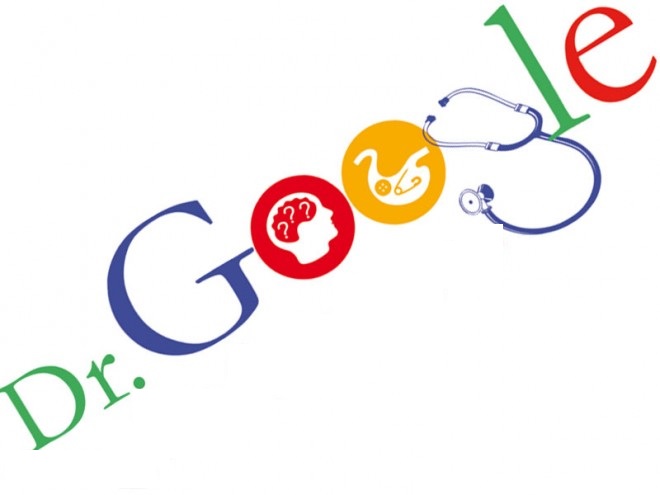Patients are becoming increasing internet and tech savvy these days. And that is generally a good thing. Patients should be empowered users of the healthcare system and advocates for themselves. Searching information on the internet, however, can lead to many different avenues of knowledge. And patients must be leery of Doctor Google.
I generally love when patients bring me articles or data they learned online. It gives me a good starting point in the discussion. However, I am finding that many patients are being deceived by knowledge that they googled. Most of the times it is of no significance. But, there are times when it can be quite dangerous.
How can googling medical information be dangerous?
1. People are lead into a false sense of security that there is nothing wrong with them. They have a specific complaints and their search lead the to believe nothing further needs to be done. This delays treatment and diseases can be missed in this fashion. If you have a complaint, speak up and discuss it with your doctor. Share your research but listen when the doctor suggests a test. It is still your right to agree or disagree. But, consider all options and just because a celebrity doctor said something don’t assume it is true.
2. Conversely, patients have a symptom and in their research assume the worst is wrong with them. I have had so many patients convinced that they had cancer based on something they googled. And there is often no way to reassure them otherwise. Unnecessary tests sometimes are done because of this. Sometimes these tests have complications. If nothing else, it causes unneeded worry and anxiety.
3. Patients can try remedies that can be dangerous or ineffective. There are many alternative medications out there. Some work and some don’t. But there are many being promoted to do things that they are simply not capable of doing. For example, I have recently seen silver nano particles being promoted as a cure for Ebola. There is no scientific proof for this and would be frankly negligent to recommend an Ebola patient try this. Yet, these companies are selling these products to gullible people. Instead of getting the medical care they need, they are paying money for something that has no science to support. It is easy to see how that can be dangerous.
4. Patients are avoiding recommended medical care because of things they read online. A big example of this is the anti-vaccine movement. Science has proved again and again that vaccines save lives and are safe. Yet, when some people hear celebrities speaking of the dangers of vaccines, some tend to believe these famous people and not the test of science. This is exposing people to more deadly infections.
5. Patients are increasingly seeking medical consultations online. While this is a great convenience for many, it is not without dangers. A doctor prescribing antibiotics over the phone can only give a best assumption. Without a hands on examination, there is simply no way to know exactly what is wrong with you. And how well do you know an online doctor?
While googling medical information is exposing people to dangers, there is much good available information out there. Patients need to learn as much as they can to be proper advocates in the healthcare system. It behooves everyone to find trusted references to use when information is needed. And online information can never replace a doctor’s in person opinion. Your doctor has your best interests at heart.
 Copyright secured by Digiprove © 2014 Linda Girgis, MD, FAAFP
Copyright secured by Digiprove © 2014 Linda Girgis, MD, FAAFP


